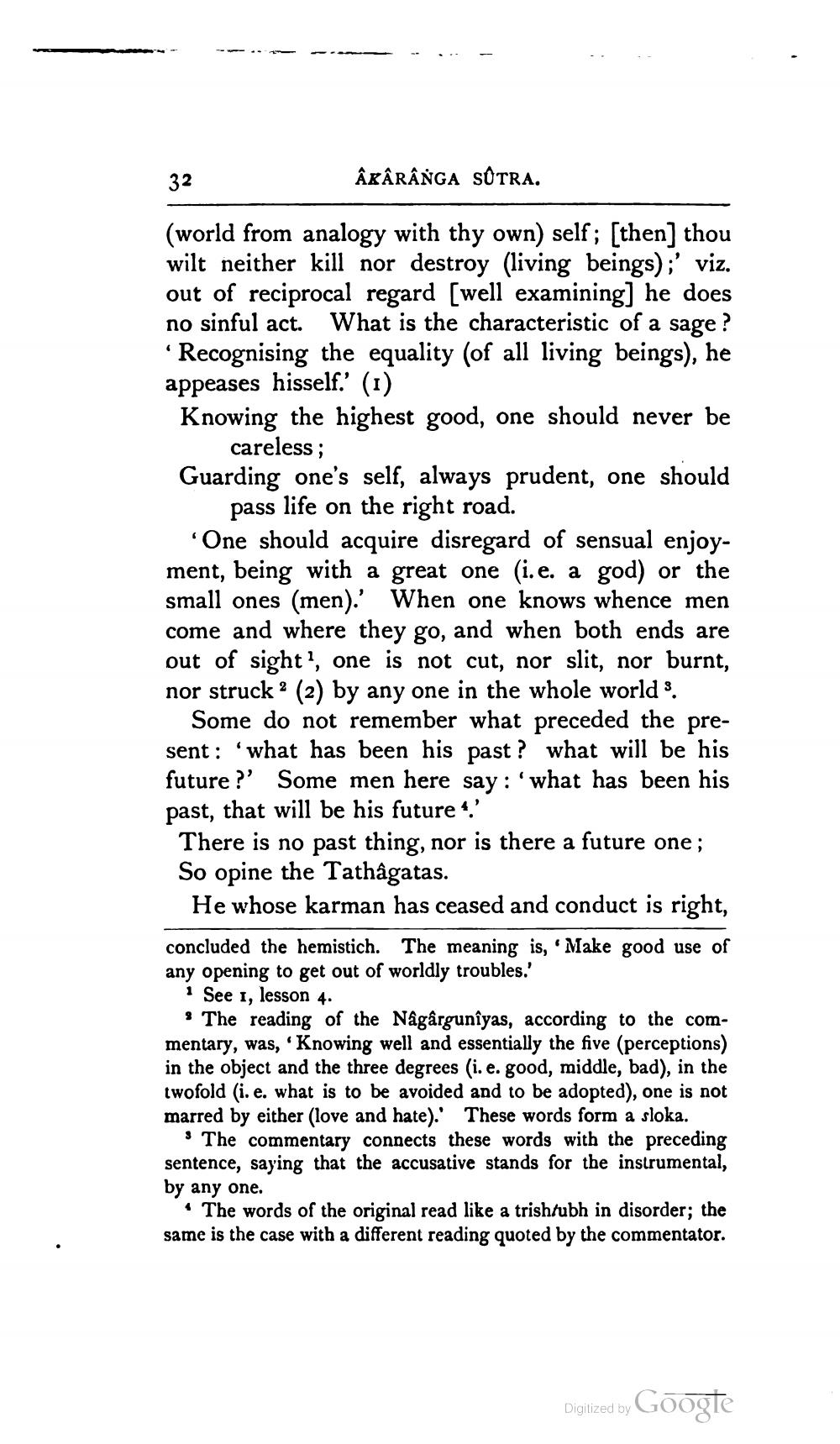________________
32
ÂKÂRÂNGA SÚTRA.
(world from analogy with thy own) self; (then) thou wilt neither kill nor destroy (living beings);' viz. out of reciprocal regard (well examining] he does no sinful act. What is the characteristic of a sage? 'Recognising the equality (of all living beings), he appeases hisself.' (1) Knowing the highest good, one should never be
careless; Guarding one's self, always prudent, one should
pass life on the right road. One should acquire disregard of sensual enjoyment, being with a great one (i.e. a god) or the small ones (men).' When one knows whence men come and where they go, and when both ends are out of sight?, one is not cut, nor slit, nor burnt, nor struck ? (2) by any one in the whole world s.
Some do not remember what preceded the present: 'what has been his past? what will be his future?' Some men here say: 'what has been his past, that will be his future?.'
There is no past thing, nor is there a future one; So opine the Tathagatas.
He whose karman has ceased and conduct is right, concluded the hemistich. The meaning is, 'Make good use of any opening to get out of worldly troubles.'
1 See 1, lesson 4.
. The reading of the Nâgârgunîyas, according to the commentary, was, Knowing well and essentially the five (perceptions) in the object and the three degrees (i.e. good, middle, bad), in the twofold (i.e. what is to be avoided and to be adopted), one is not marred by either (love and hate).' These words form a sloka.
The commentary connects these words with the preceding sentence, saying that the accusative stands for the instrumental, by any one.
The words of the original read like a trish/ubh in disorder; the same is the case with a different reading quoted by the commentator.
Digitized by a
Digilized by Googte




